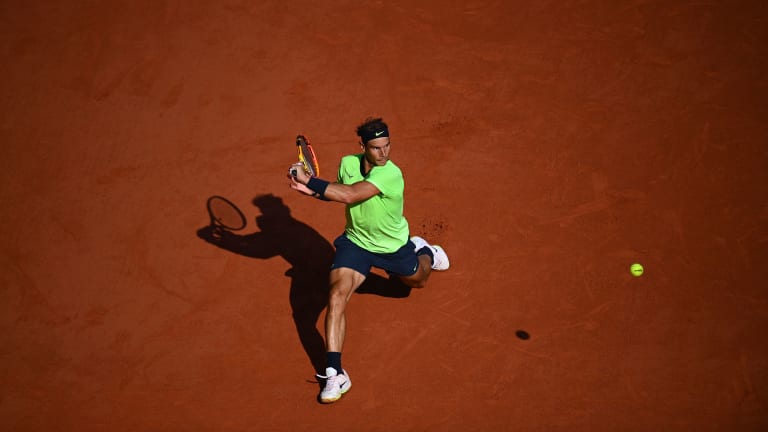Roland Garros
Novak Djokovic, Rafael Nadal teach tough lessons to Italian teens Musetti, Sinner in Paris
By Jun 07, 2021Roland Garros
Rafael Nadal withdraws from French Open with hip injury; 2024 likely to be last year on tour
By May 18, 2023Roland Garros
French Open organizers give wild cards to veterans Paire and Mladenovic
By May 15, 2023Roland Garros
Novak Djokovic: 19 stats for his 19th Grand Slam title
By Jun 14, 2021Roland Garros
Five Things To Know About Barbora Krejcikova’s Win At Roland Garros
By Jun 14, 2021Roland Garros
Ranking Reaction: Tsitsipas hits new high of No. 4, Krejcikova surges into Top 20
By Jun 14, 2021Roland Garros
How do Novak Djokovic, Rafael Nadal and Roger Federer stack up, post-Paris?
By Jun 14, 2021Roland Garros
The Rally: Is Novak Djokovic's Roland Garros triumph the most remarkable of his 19 Slam-title runs?
By Jun 13, 2021Roland Garros
Dani's Take: Krejcikova's triumph, Djokovic's usurpation, and taking stock of the final 72 hours in Paris
By Jun 12, 2021Roland Garros
The Rally: At a French Open where new faces confronted big moments, Barbora Krejcikova completes a breakout singles run
By Jun 12, 2021Novak Djokovic, Rafael Nadal teach tough lessons to Italian teens Musetti, Sinner in Paris
Projected to face off in the semifinals, Djokovic rallied from two sets down while Nadal turned around a tricky opening set to advance.
Published Jun 07, 2021
Advertising
Advertising
Advertising
Advertising
Advertising

Nadal defeated Jannik Sinner in Paris for a second straight year (Getty Images).
© AFP via Getty Images